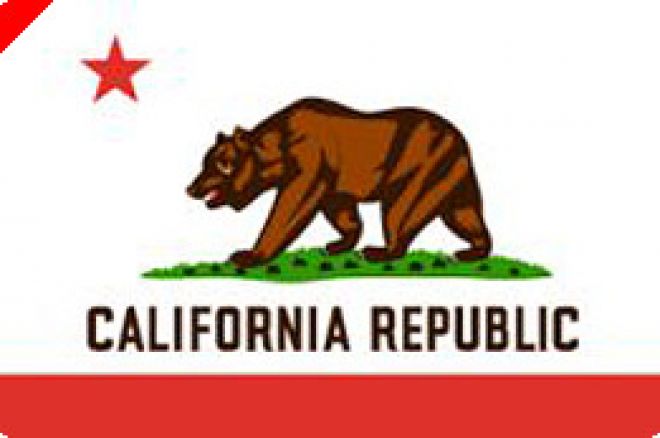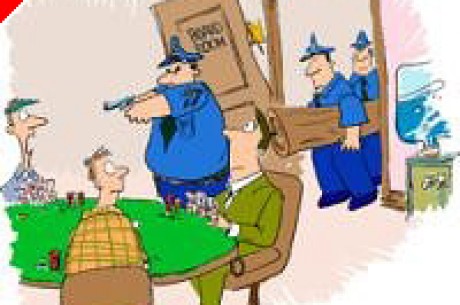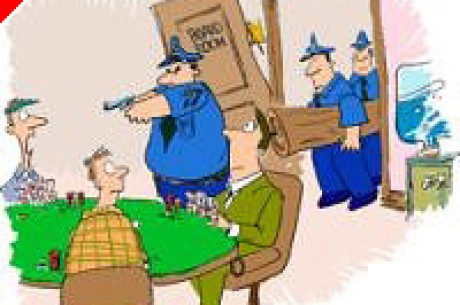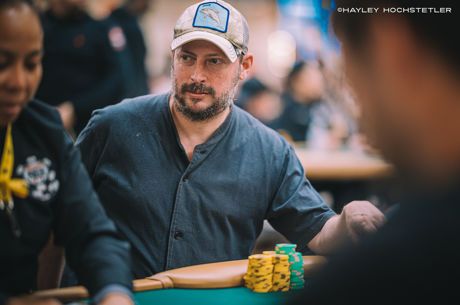Charity Poker Laws at Issue in California

California is a difficult place to find balance, at least when it comes to legality surrounding state charity poker laws. Even state-based newspapers can't agree on the subject, with media coverage varying from the good being done by poker players and fundraiser tournaments, to the fact that in California charity fundraisers are officially illegal throughout the state.
According to a recent LA Daily News article, organizations ranging from churches to school boosters are joining ranks of numerous companies using charitable tournaments to capitalize on the No Limit Hold'em craze that has swept across the United States.
Quickly surpassing bake sales and many traditional ways to raise money, poker is making a difference in the lives of California's residents. Groups like the West Ranch High School in Stevenson Ranch raised $12,000 in an October poker fundraiser, while the Make-A-Wish foundation earned a big cash of $60,000 for its August poker tournament hosted by LA Kings hockey superstar, Luc Robitaille.
Even churches have jumped on the poker bandwagon as various groups see that they can cash in on the game's popularity and raise money for a good cause. "It's on T.V., people are playing it in their homes, everybody seems to be playing. I don't play - it's not my thing - but I've already been called by three or four parishes. They want to do it too," said Joy Holland, the development director at St. Mel Catholic Church in Woodland Hills
The positives of poker fundraising are currently trumping the state's laws regarding gambling, forcing the government to remind groups that these functions are currently illegal in California. According to a two-year-old law, the state justice department
has and can, put an end to these activities.
Recently, one San Jose organization came under the scrutiny of state law and had to cancel their fundraiser for a local library. The Almaden Business Association was set to raise between $8,000 to $10,000 for the worthy cause but was stopped short when they received notification from the state that they tournament was illegal.
In a recent Mercury News article, Rich De La Rosa, a member of the business association, claimed the law is unfair and unrealistic. "It's not just our organization doing it. Churches, schools, even sheriff's associations, you name it, just about everybody - they have a charity casino night, a poker night or a Texas Hold'em night and all of those are illegal based on the Department of Justice's interpretation of the law."
The threat of legal action is beginning to set in for numerous groups as the penalties are severe for the organizer of the events. According to the law, these charitable souls could face one year in jail and a $5000 fine.
According to a recent LA Daily News article, state officials have their hands tied when it comes to the legality of the poker fundraisers. "California law is rigid and inflexible when it comes to nonprofits and charitable gambling. There is no exception written into the law. Even if you're not playing for real money, it is illegal," said Nathan Barankin, communications director for the Attorney General's Office.
The 2003 state law, which was originally designed to curb card club's take on pots, unfortunately includes language that "controlled games," such as poker, especially Texas Hold'em, can only be played at licensed card rooms or tribal casinos.
"It was just a fluke that happened, that affected charities. It was one of those unintended consequences," said I. Nelson Rose, a Whittier Law School professor and California gaming expert.
Many groups hoping to raise money through poker are now reconsidering their efforts but some continue to flout the law because there has yet to be one non-profit group charged with illegal gambling. This does not mean however that bars and clubs have not been forced to comply with the law, as raids and busts have occurred over the course of the last year and will continue as long as the law is in place.
Not everyone agrees with the heavy-handed law. According to Nathan Barankin, a spokesman for California Attorney General Bill Lockyer, the laws is "un-flexible and unforgiving," but the law must be upheld.
"We don't have a dedicated unit or agents that are scouring the state for charities offering these games. But we do have to enforce the law," Barankin said.
Despite having to enforce the laws, Barankin are trying to help organizations realize that they may be doing something illegal. "We try and be preventive. So if we hear about it, we'll call and make sure they are aware of the law."
The focus on the illegality of these charity nights has even reached local government officials as groups like the San Jose Silicon Valley Chamber of Commerce have had to reconsider their tactics. The government agency sponsored a Women In Leadership tournament in June that drew 275 players. Each player shelled out $75 to raise money for a worthy cause and win donated prizes. The group, now mindful of the law, may be forced to eliminate the event. "It is something we may have to rethink," said chamber spokesman Ken Heiman.
There is light on the horizon for groups looking to raise money through tournaments. Assemblyman Alberto Torrico, D-Fremont has worked with the justice department and is sponsoring a bill to exempt non-profit groups from the law. According to Torrico, thanks to the government cuts on spending for social programs, groups have had to step up and fill the void and many can do that successfully through poker nights.
"Gambling is a reality in California. We have card clubs, we have race tracks, and we have casinos run by the tribes. State-sanctioned gambling is the lottery. What also is a reality is that these nonprofits are picking up the slack (of government). You have to balance those out. On balance, these are worthy organizations that need all; the help they can get to raise money," Torrico said.
Torrico's bill, AB 839 will allow for nonprofits to indulge in gaming for charitable purposes but also contains specific wording to curb abuse by fake nonprofits. According to the new bill, 98 percent of the proceeds must go to named charities and charities would only be allowed to host two events yearly. Under the bill, a fee will also be charged to help defray justice department administrative costs and cash prizes will be completely banned.
Unfortunately, one of the drawbacks to the new legislation is that the leftover two percent of the money raised will not be enough to cover cost of food, drinks, dealers, tables and room rental.
Torrico's bill is scheduled to be considered by the Assembly Appropriations Committee early next year and could become the benchmark of future nonprofit gaming legislation if passed.








